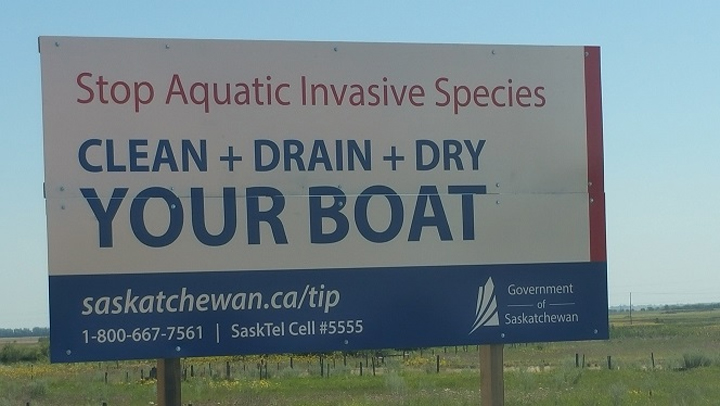Clean, drain and dry – that’s the message the Saskatchewan government is sending to boaters in new highway signs.

The message is aimed to stop the spread of aquatic invasive species into the province.
“Invasive species have the potential to severely impact our environment,” said Highways and Infrastructure Minister Nancy Heppner.
“Prevention through education, such as these signs, is a cost-effective way to help control any potential spread.”
READ MORE: Saskatchewan on the lookout for invasive aquatic species
The signs are being placed along key inter-provincial routes targeting drivers coming into the province from southern and eastern areas where zebra and quagga mussels are prevalent.
Zebra mussel larva have been found in Cedar Lake, Man., which is part of the Saskatchewan River system, along with Lake Winnipeg and in North Dakota waterways.
The province has taken other steps to stop the spread of invasive species.
“Our government’s focus includes increased watercraft inspections, decontaminating high-risk watercraft found entering the province and additional education and awareness efforts such as this signage to help protect our fish populations and aquatic habitats,” Environment Minister Herb Cox said.
READ MORE: Alberta, BC, Manitoba, Saskatchewan, Yukon agree to fight zebra mussels
Once a waterway becomes infested with an invasive species, it is almost impossible to eradicate. Along with the potential to severely impact aquatic habitats and fisheries, it could also affect hydro-electric power, municipal water systems and irrigation.
According to the South Saskatchewan River watershed stewards, it could cost the province $15- to $30-million yearly to deal with invasive species in Saskatchewan waters.


Comments